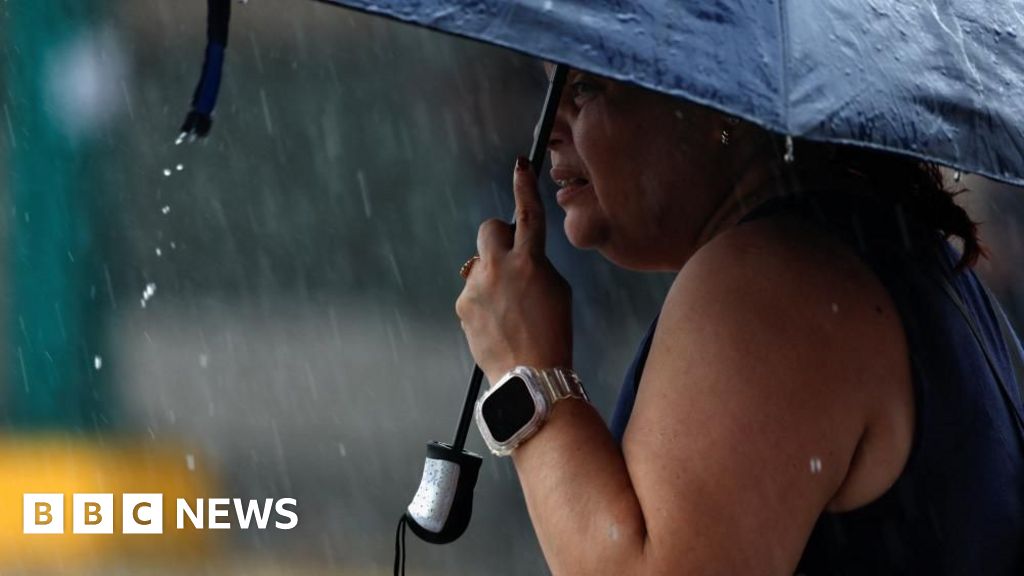World
Storm Alberto claims lives in Mexico and drenches Texas coast

Three people have died after the Mexican coast was hit by the first named storm of the North Atlantic hurricane season, which is also drenching southern Texas with heavy rain.
Storm Alberto is threatening both countries with coastal flooding and high winds, says the US National Hurricane Centre (NHC).
Officials in Mexico said the three deaths occurred in the northern Nuevo León state. At least two were minors.
Over the border in Texas, a disaster declaration is already in place.
A bulletin from the NHC on Wednesday night warned of “life-threatening” flooding and mudslides in north-eastern Mexico and southern Texas.
Maximum sustained winds of 50 mph (80km/h) have been reported. The system has been upgraded from a tropical cyclone, but remains below hurricane-strength.
NHC meteorologists expect it to make landfall in Mexico later on Thursday before it dissipates without directly striking the US.
The Nuevo León state governor has announced the temporary suspension of public transportation. In neighbouring Tamaulipas, schools have been closed.
Although the storm is several hundreds miles off the US Gulf Coast, its edges have brought significant rainfall to Texas. Some 4in (10cm) have fallen in Southside, near Houston, prompting evacuations, according to the BBC’s US partner CBS News.
The state’s disaster declaration, issued by Governor Greg Abbott, means that “widespread and severe property damage, injury and loss of life” are possible.
The North Atlantic hurricane season runs from June to November. This year, there could be as many as seven major hurricanes, the US weather agency warned last month. That would be more than double the usual number.
Record-high sea surface temperatures are partly to blame, as is a likely shift in regional weather patterns.
While there is no evidence climate change is producing more hurricanes, it is making the most powerful ones more likely, and bringing heavier rainfall.
Human-made climate change also made recent extreme heat in the US south-west, Mexico and Central America around 35 times more likely, scientists from the World Weather Attribution (WWA) group said in a new report on Thursday.
The onset of Alberto comes as much of the continent is again baked by high heat. As of Thursday morning, 86 million Americans – one in four of the population – are living in warning areas. Alerts are also in place in seven of Canada’s provinces.
Boston was among the eastern American cities that sweltered during the Juneteenth holiday – breaking a 101-year-old record temperature for 19 June with a reading of 98F (37C).
Wildfires that have ignited earlier than usual have already burned through tens of thousands of acres in California and New Mexico, claiming at least two lives in the latter US state.
Some Mexicans welcomed the rain brought by Alberto following a severe drought in the region, the Associated Press reported.
“Let’s hope that we only get water,” a resident of Tampico told the news agency. “Our lagoon, which gives us drinking water, is completely dry.”










